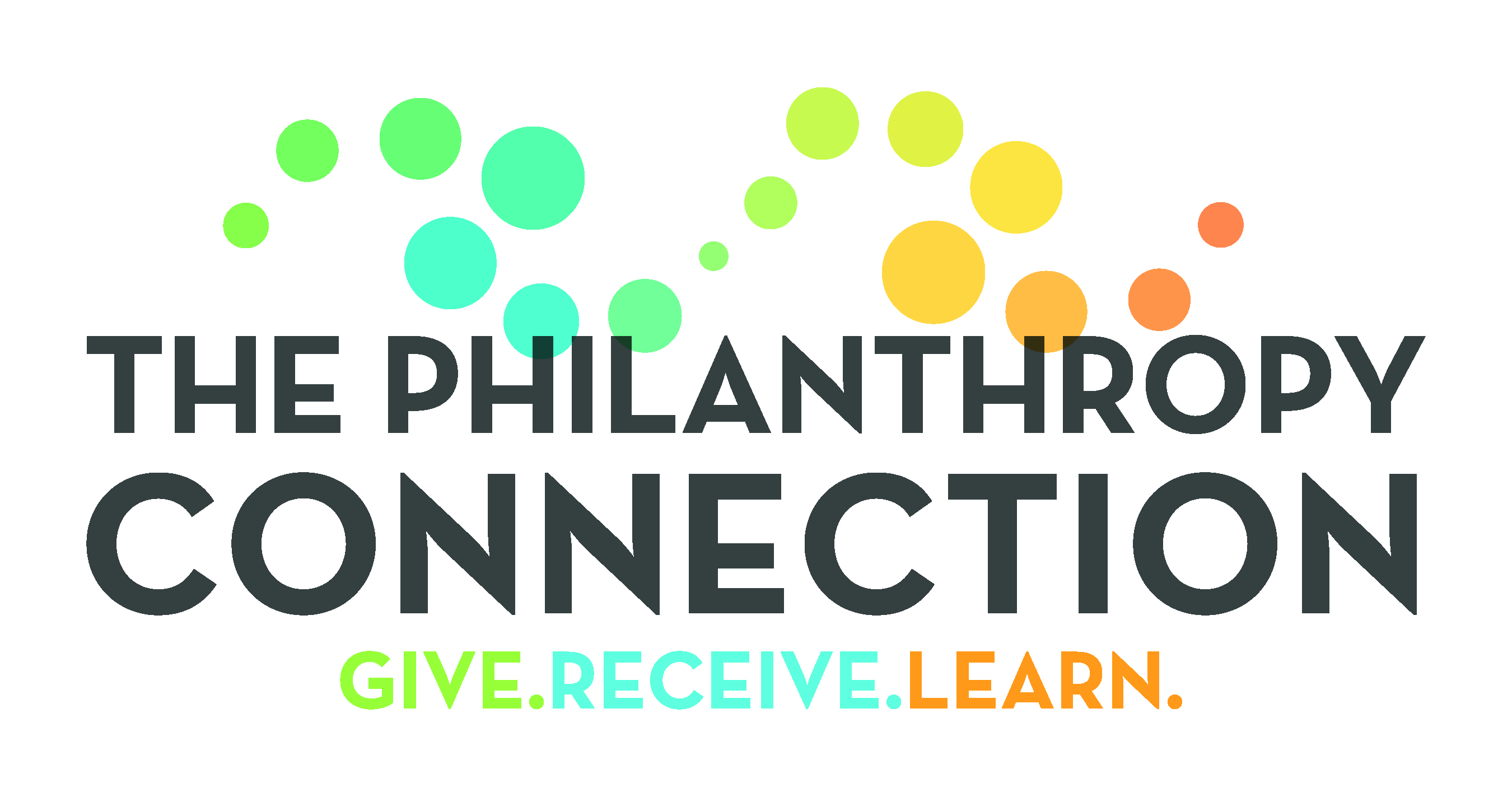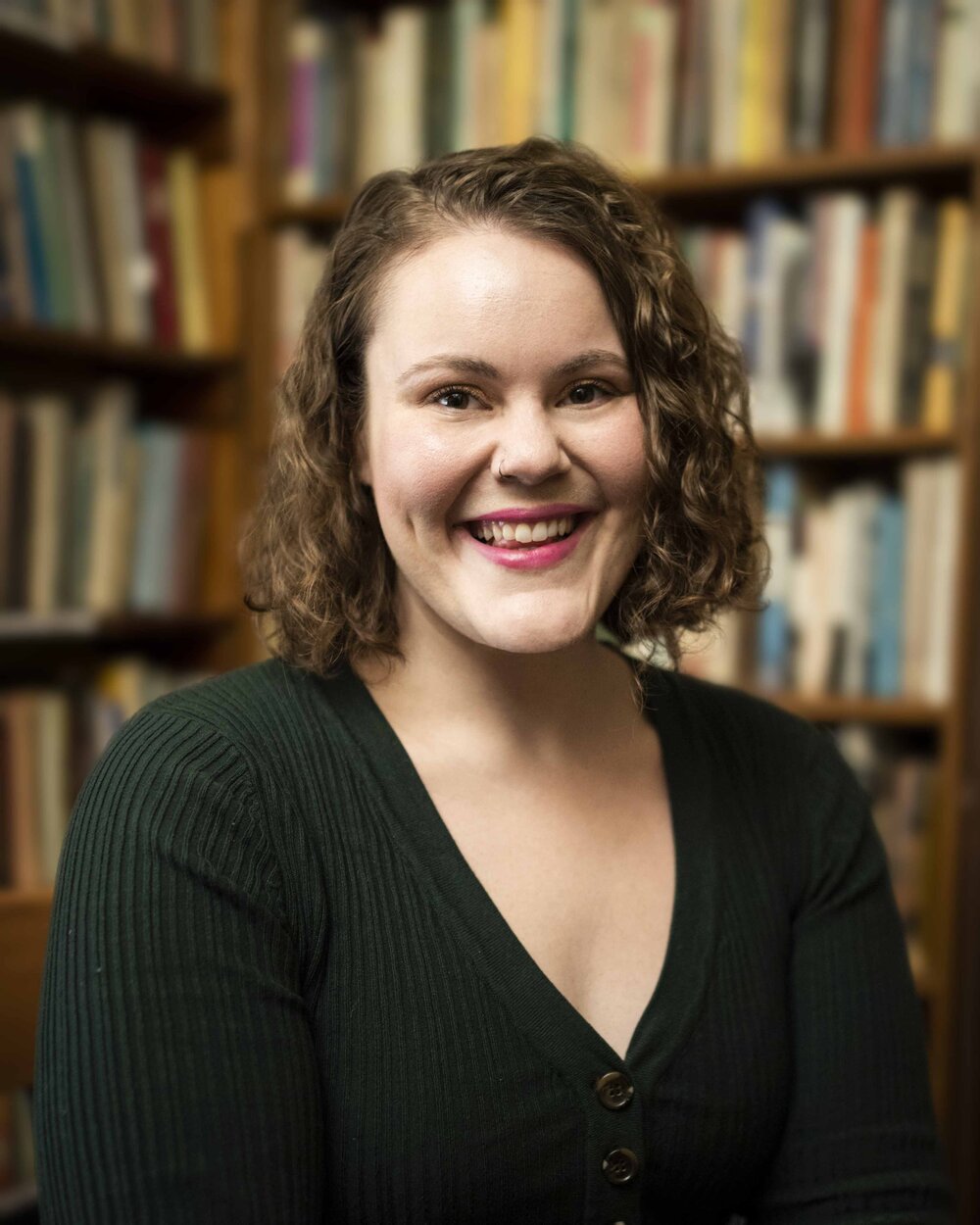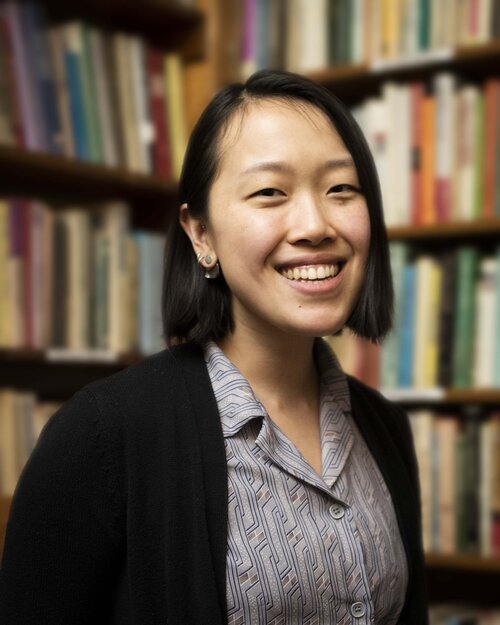The Interview with Jessye Kass and Michelle Long
The Cambridge Women’s Center (the Center) is a supportive community space for all women that offers three strands of free services delivered in a low-threshold, harm reduction model. The Center was founded in 1971 through a feminist movement that led to a 10-day building takeover, and a $5,000 donation that was used to purchase the 4-story home the Center currently operates in. For 49 years, the Center has been a place for all women, from all walks of life. The Center offers opportunities for empowerment, healing, learning, trauma support, and understanding; it does this by filling in the gaps in social services and providing free groups and activities, hotline phone support, and a warm home-like environment, with computers, kitchen access, volunteer support, and much more. Open 6 days a week, 100% of the services offered are volunteer run. Currently, the small team relies on just two paid staff and over 350+ volunteers a year. Volunteers include Judy Norris, their 80-year-old board chair who volunteers full-time, and has since the founding in 1971.
What are the goals of the organization?
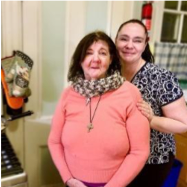 Our goal is to be a safe and supportive place that is run by and supports a community of women from all walks of life. We provide free and essential services, filling in the gaps in other social services and providing opportunities for connection.
Our goal is to be a safe and supportive place that is run by and supports a community of women from all walks of life. We provide free and essential services, filling in the gaps in other social services and providing opportunities for connection.
What drew you to this work?
Jessye has more than 10 years’ experience serving low-resource populations and over 5 years of management experience. On a personal level, she is deeply connected to this work, as she herself suffers from mental illness and is a survivor of domestic violence. Michelle is a recent Harvard College graduate, and a first-generation woman of color who has witnessed mental illness and generational trauma.
Please tell us a little bit about your programs.
To provide a safe and supportive community space in a home-like atmosphere for all women, the Center operates three main programs: Drop-In, including access to the house, kitchen, computers, library, art room, and more; Helpline, for emotional support and resource referrals; and Groups, with 25-30 free groups every month ranging from creative arts to trauma support to meditation. All services are free and open to all women. By offering extensive opportunities for connection and support, the Center lessens the impact of social isolation and trauma. Members consistently report feeling less isolated because of the community here.
What would you say is unique about the Center?
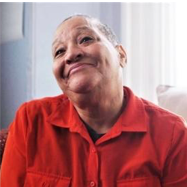 Any woman who enters our doors is referred to as a member of our community. There are women who drop in only once, and those who come in every day, each bringing their own history and personality. Although Greater Boston has a large social service network, all networks have gaps. Most drop-in programs are only for specific populations, such as those experiencing homelessness or those actively using drugs. Other daytime social services for women in the area such as On The Rise, Women’s Lunch Place, or Rosie’s Place close in the early afternoon and exclude our housed members (over 60% of our members). Many of the members using our Center don’t qualify for those programs, have needs that are not met by them, or need a safe place during the afternoon or early evening. We have no intrusive intake procedures and no restriction on how long women can use the services. Our open access policy lowers the barriers that prevent women from seeking help. As a low-threshold drop-in center for all women, we are committed to providing access to those who are not able to find or receive help elsewhere, or for whom structured models for seeking service are not feasible. This approach allows us to cultivate a diverse community of women from all backgrounds and life experiences. At the Center, women are not identified by their difficulties in life, but are instead empowered to find connection within a unique and mutually supportive community on their own terms. There are few venues for women to create the support systems they need and value. At the Center, women from the community are encouraged to initiate support groups, creative workshops, and events in which they wish to partake.
Any woman who enters our doors is referred to as a member of our community. There are women who drop in only once, and those who come in every day, each bringing their own history and personality. Although Greater Boston has a large social service network, all networks have gaps. Most drop-in programs are only for specific populations, such as those experiencing homelessness or those actively using drugs. Other daytime social services for women in the area such as On The Rise, Women’s Lunch Place, or Rosie’s Place close in the early afternoon and exclude our housed members (over 60% of our members). Many of the members using our Center don’t qualify for those programs, have needs that are not met by them, or need a safe place during the afternoon or early evening. We have no intrusive intake procedures and no restriction on how long women can use the services. Our open access policy lowers the barriers that prevent women from seeking help. As a low-threshold drop-in center for all women, we are committed to providing access to those who are not able to find or receive help elsewhere, or for whom structured models for seeking service are not feasible. This approach allows us to cultivate a diverse community of women from all backgrounds and life experiences. At the Center, women are not identified by their difficulties in life, but are instead empowered to find connection within a unique and mutually supportive community on their own terms. There are few venues for women to create the support systems they need and value. At the Center, women from the community are encouraged to initiate support groups, creative workshops, and events in which they wish to partake.
How has TPC helped you?
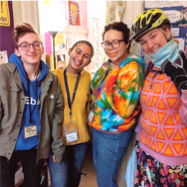 Our small, but mighty, team currently relies on just two paid staff and 350+ volunteers. We are thrilled to announce that we will be using TPC grant funds toward the addition of a new full-time staff position – a Volunteer Manager – to replace our outgoing, part-time unpaid team member in this position. We are currently close to hiring. We would not have been able to expand our team without your generous support.
Our small, but mighty, team currently relies on just two paid staff and 350+ volunteers. We are thrilled to announce that we will be using TPC grant funds toward the addition of a new full-time staff position – a Volunteer Manager – to replace our outgoing, part-time unpaid team member in this position. We are currently close to hiring. We would not have been able to expand our team without your generous support.
Being a part of TPC is powerful for us, as we are also a community of women sustained by women interested in helping others. The giving circle of TPC is more than just a grant funding opportunity: it has been a community of support full of ideas, support, volunteered time and resources, connection, and much more.
There are many ways to get involved with the Center. There are always volunteer opportunities, from direct service, tracking inventory, marketing, or serving as a Board member.
Please share some of the results of the work the Center does.
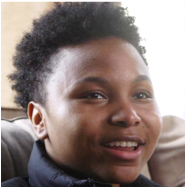 There are so many, but here are a few.
There are so many, but here are a few.
Story of Impact
Comments from our members and volunteers:
“I would not have a job if it wasn’t for the Women’s Center.”
A member who used our library and computers in her job search after losing her job due to relocation from domestic violence.
“I work in management and attend support groups [here] for free; something my insurance would not cover.”
A member of our community.
“Imagine all the stuff you do in your down time in your house, having all that taken away and having no place to do that. This is one place that fills that gap as much as [they] possibly can.”
A woman who comes to the Center during the day when shelters are closed to apply for jobs and receive support.
“There’s always someone here who is open for conversation and I had always had that in my life before becoming homeless. Becoming homeless changed that, and I really could not find people with whom I felt safe talking with until I came here”
A woman who found housing in 2019
“I am healing from my abuse and I feel less isolated and less shame and guilt about my circumstances. I benefit from hearing from others and from talking myself. The Center has been a lifeline for me, and I am so glad it exists”.
A support group participant
“I did not expect to feel so fulfilled by the work. I’ve come to appreciate how much people value having someone to simply listen to their problems and offer them genuine care, support, and insight. Several callers expressed such gratitude that I was there for them when they didn’t know who else to turn to.”
A volunteer
A few additional stories
Emily was evicted from her apartment in Newton, MA. She had been laid off, was unable to secure a new job, and had spent all her savings. Emily found herself at the Pine Street Inn homeless shelter for 13 months. She needed to be out of the shelter by 6:45 am, and would make her way to the Women’s Center, as a safe place to rest, eat, and recharge. She came to the Center nearly every day for months until she finally was re-housed in Brookline. A few months ago, she came to visit to thank us and let us know how much the Center was critical in her stabilization and being re-housed.
Sue has two small children and was living in Florida when she decided she could no longer take the domestic abuse from her partner. She knew her cousin had received help in Massachusetts, so she put her kids in her van and began driving. Once in Massachusetts, she heard about the Women’s Center, and spent the day here working with our staff to find her a shelter option for her and her children, navigating tough bureaucracy and identification requirements. We found her a place to stay, and she left with her kids’ bellies full of food and a look of hope on her face.
Jane suffers from a complicated series of mental and physical disabilities. She has been homeless for over 20 years, and is unwilling to enter the housing system due to her paranoia and fears about information. The Women’s Center is her entire social network, as well as where she receives food and access to information. She receives emotional support from the volunteers and provides laughter and interesting perspectives to our community.
*Names have been changed to protect the identities of the women in our space.
